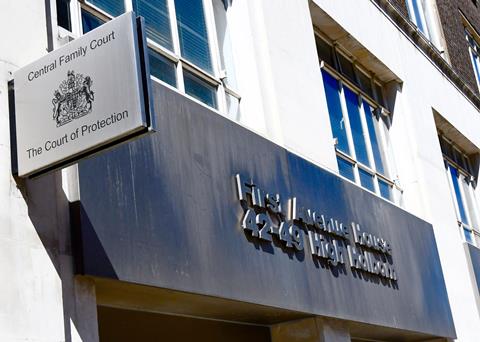Family justice delays are putting children at risk of harm and anxiety, according to a shocking new report from the National Audit Office - which also revealed that legal aid spend has also doubled because cases are taking longer to resolve.
The spending watchdog today published the findings of its review on the government’s approach to improving family court services.
While the family courts have recovered better post-Covid than the criminal courts, a public law case lasted 36 weeks on average last year despite a statutory 26-week deadline. Private law cases, which have no statutory deadline, took 41 weeks to be resolved.
The report states: ‘Delays can mean children must wait longer for permanent care and living or contact arrangements, and may have the disruption of multiple short-term placements. Children may also experience anxiety, a lack of stability and disrupted friendships and education.’
Average spending on legal aid for a public law case between 2018 and 2022 doubled to nearly £12,000, ‘mainly due to cases taking longer’. This was equivalent to an annual increase of £314m legal aid spending for all public law cases.

Analysis by the Department for Education suggests reducing delays by a week would save local authorities £697 per case - equivalent to an estimated £18.5m saving nationally.
The NAO says the dispersal of responsibilities for family justice across several government departments had led to ‘weak accountability for overall performance’. A ministerial-led Family Justice Board to help organisations work together effectively, improve performance and hold organisations to account internally met, on average, 2.5 times per year between June 2018 and December 2024.
Meanwhile the government lacks the relevant data to understand the causes of delays across the system and does not know how much is spent on family justice, 'making it difficult to understand cost-effectiveness’, the NAO states.
Recommendations include developing an overall strategy for family justice improvements, which include measurable objectives and performance indicators, and a data and evidence strategy to identify gaps.
Law Society president Richard Atkinson said legal aid cuts was a 'driving factor' in the growing number of unrepresented people in court.
'These cases take longer because often they involve deeply emotional issues for individuals who do not have legal experience, which increases the chances of going to a final hearing as they are less likely to know what a reasonable settlement looks like,' Atkinson said.
'Court staff, judges and professionals all work extremely hard to get the best outcomes for the public, but the government needs to invest more and take a broader approach to make sure the justice system meets the needs of children and families.'
This article is now closed for comment.



























5 Readers' comments